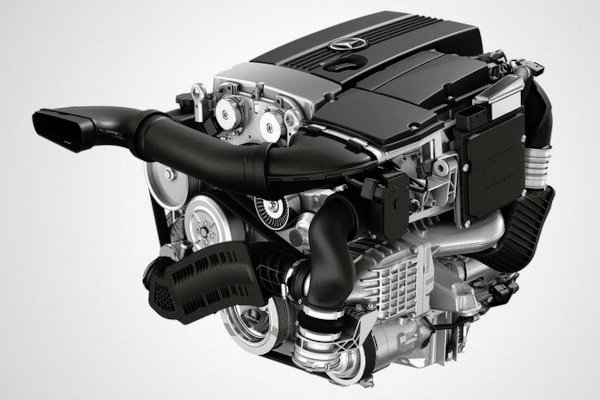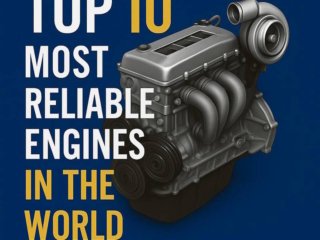The Mercedes-Benz M271 engine is a four-cylinder, inline engine that was introduced in the early 2000s. This engine family comes in various forms, including naturally aspirated and supercharged (Kompressor) as well as turbocharged versions. It was widely used across models like the C-Class, E-Class, SLK, and CLK, mainly between 2002 and 2015. Despite its popularity, the M271 engine has gained a reputation for some recurring issues, which can be costly if left unchecked.
Overview of M271 Variants
M271.940 / M271.941: Supercharged (Kompressor) versions.
M271.820 / M271.860 / M271.861: Turbocharged, direct injection models.
M271.950 / M271.952: CGI (direct injection with turbocharging).
The earlier Kompressor versions had different problems compared to the later CGI (direct injection) turbocharged variants, but there are some shared issues as well.
Common Problems with the M271 Engine
Here’s a deep dive into the most frequent problems associated with the M271 engine and what to look out for:
1. Timing Chain Stretch/Wear
Symptoms: Rattling noise, especially on cold starts, rough idle, engine misfires, or a check engine light with timing-related error codes (P0016, P0017).
Cause: The timing chain on the M271 engines can stretch over time, especially on earlier models. The plastic timing chain guides can also wear down, exacerbating the issue. The main cause is usually extended oil change intervals or low-quality oil.
Fix: If you hear rattling noises, it’s best to have the chain inspected promptly. Replacing the timing chain, tensioner, and guides can prevent catastrophic engine failure. A good rule of thumb is to have the timing chain checked around 60,000 to 100,000 miles.
2. Camshaft Adjuster Magnet Leaks
Symptoms: Oil leaking near the front of the engine, check engine light with camshaft position-related error codes.
Cause: The camshaft adjuster magnets (also known as camshaft solenoids) can develop internal leaks over time, leading to oil contamination of the engine wiring harness and ECU.
Fix: Replacing the camshaft adjuster magnets is necessary to stop the leak. In some cases, the wiring harness may also need to be replaced if it has been soaked in oil.
3. Balance Shaft Sprocket Wear (Pre-2010 Engines)
Symptoms: Check engine light, engine misfires, poor acceleration, and error codes related to camshaft timing (P0016, P0017).
Cause: The balance shaft sprocket teeth can wear out, leading to timing misalignment. This issue is particularly prevalent in the M271.940 and M271.941 engines produced before 2010.
Fix: Repairing this issue requires removing the engine and replacing the balance shaft, which can be quite expensive. This problem often appears after 80,000 to 120,000 miles.
4. Oil Leaks (Valve Cover Gasket and Oil Cooler)
Symptoms: Oil stains under the vehicle, burning oil smell, or low oil level warning.
Cause: The valve cover gasket and oil cooler seals tend to degrade over time, especially on engines exposed to high temperatures.
Fix: Inspect the valve cover and oil cooler regularly for leaks. Replacing the gaskets can prevent further damage and potential engine overheating.
5. Direct Injection Carbon Build-Up (CGI Engines)
Symptoms: Rough idle, reduced fuel efficiency, hesitation during acceleration, and misfires.
Cause: Due to direct injection, carbon buildup can accumulate on the intake valves, restricting airflow and affecting engine performance.
Fix: Periodic walnut blasting of the intake valves is recommended every 40,000-60,000 miles to maintain performance. Using high-quality fuel and additives can help slow down the buildup.
6. Supercharger Issues (Kompressor Models)
Symptoms: Loss of power, whining noise from the engine bay, or a rough idle.
Cause: The supercharger can wear out over time, particularly if the oil inside it isn’t changed periodically.
Fix: The supercharger clutch and bearings may need replacement if worn. Regular servicing of the supercharger can extend its lifespan.
7. Thermostat and Water Pump Failures
Symptoms: Overheating engine, fluctuating temperature gauge, or a check engine light related to coolant temperature.
Cause: The water pump and thermostat can fail, especially on higher-mileage engines, leading to overheating issues.
Fix: Replace the thermostat and water pump as needed. Regularly check coolant levels and top up with Mercedes-approved coolant.
Maintenance Tips for Mercedes-Benz M271 Engine
If you own or are considering buying a vehicle with the M271 engine, here are some maintenance tips to help extend its lifespan and avoid common issues:
1. Shorten Oil Change Intervals
Recommendation: Change the oil every 5,000-7,000 miles instead of the Mercedes-recommended 10,000 miles, using high-quality synthetic oil. This helps prevent timing chain wear and reduces carbon buildup.
2. Monitor the Timing Chain
If you hear any rattling noises, especially during cold starts, get the timing chain inspected immediately. Replacing it early can prevent engine damage.
3. Regular Carbon Cleaning (CGI Models)
For CGI engines, perform a walnut blasting service every 40,000-60,000 miles to clean the intake valves. Using premium fuel and occasional fuel system cleaners can help reduce carbon deposits.
4. Inspect for Oil Leaks
Check for leaks around the valve cover, oil cooler, and camshaft adjuster magnets during regular service intervals. Early detection can prevent costly repairs.
5. Check for Software Updates and Recalls
Mercedes-Benz occasionally releases software updates and recalls to address known engine issues. Contact a dealer to see if your car is eligible for any free updates.
6. Use Quality Fuel and Additives
Always use high-quality fuel (preferably premium unleaded) and periodically use fuel additives designed for direct injection engines to keep the injectors clean.
7. Get a Pre-Purchase Inspection (PPI)
If you’re buying a used Mercedes with the M271 engine, it’s crucial to get a PPI from a qualified mechanic familiar with these engines. This can save you from costly repairs down the line.
Conclusion
The Mercedes-Benz M271 engine, while capable and efficient, does have its share of common issues, particularly with the timing chain, camshaft adjuster, and carbon buildup in direct injection models. Regular maintenance and early intervention can help mitigate many of these problems.
If you’re considering buying a car with the M271 engine, ensure it has a complete service history and get a pre-purchase inspection to check for any of the known issues. With proper care, the M271 engine can offer reliable performance, but neglecting maintenance can lead to costly repairs down the road.



